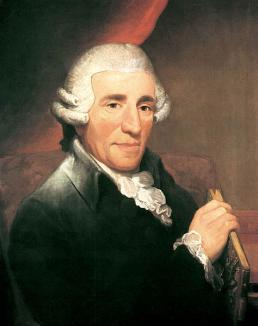Joseph Haydn
1732 - 1809

Born in 1732 in Rohrau, Lower Austria, Haydn displayed early musical talent, leading him to be sent to Vienna at the age of eight to sing in the choir of St. Stephen's Cathedral. Upon leaving the choir at 17, he struggled financially for years, teaching himself composition and performing while seeking a steady position.
In 1757, Haydn found employment with Count Morzin, composing his first symphonies. Shortly thereafter, he entered the service of the Esterházy family, a relationship that would last for nearly four decades. During this period, Haydn composed many of his most renowned works, including numerous symphonies, string quartets, and other chamber pieces.
Haydn's innovative and creative spirit often led him to experiment with form and structure. His compositions gained widespread acclaim, both domestically in Austria and internationally. Despite his longstanding ties to the Esterházys, Haydn made two successful trips to London in the 1790s, where he composed and premiered new symphonies.
In the latter part of his life, Haydn turned increasingly to the composition of choral works. He passed away in 1809 in Vienna.
Haydn's lasting impact on the course of music history is immeasurable. He laid the groundwork for the classical form and profoundly influenced subsequent generations of composers, including Mozart and Beethoven.
Pieces
